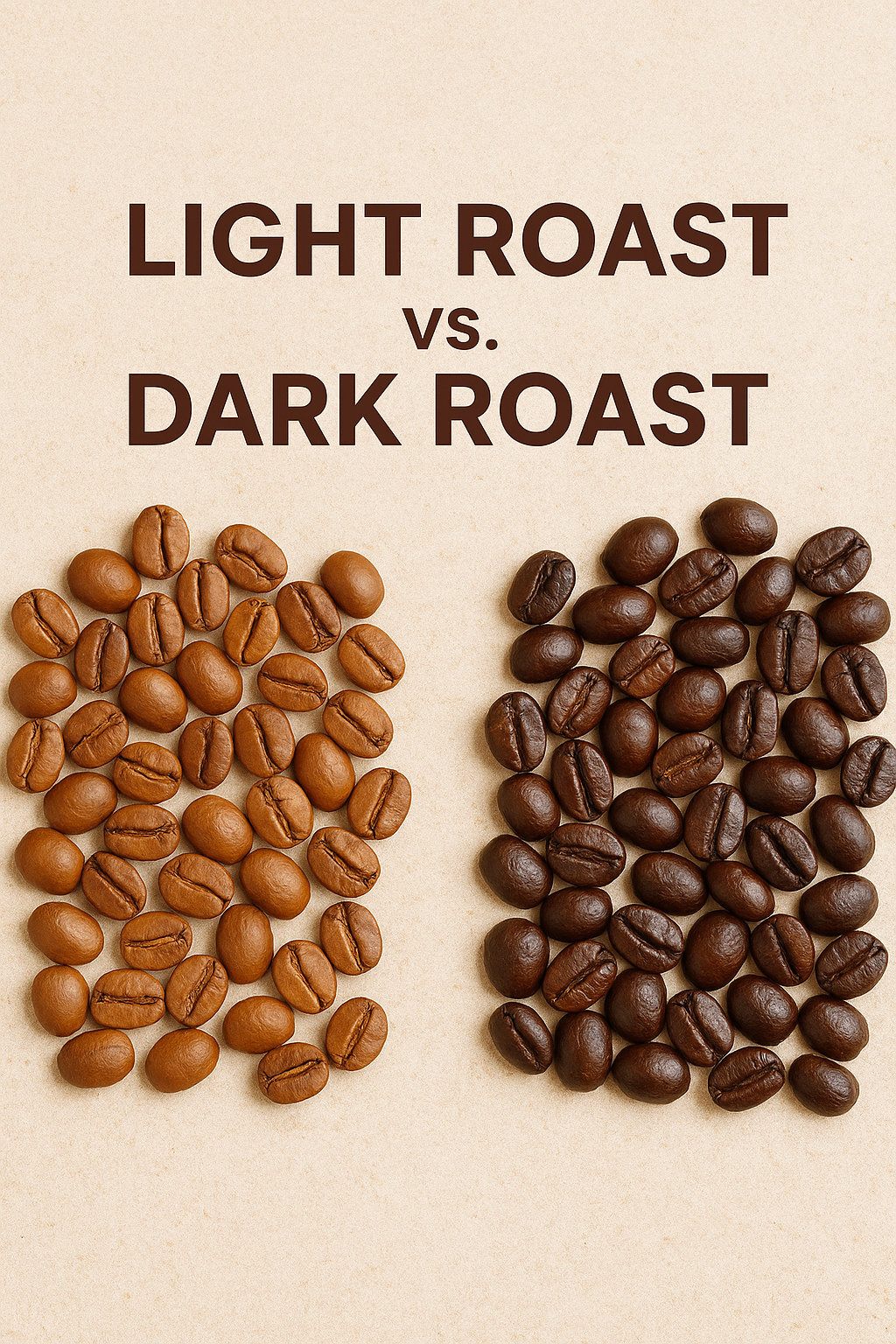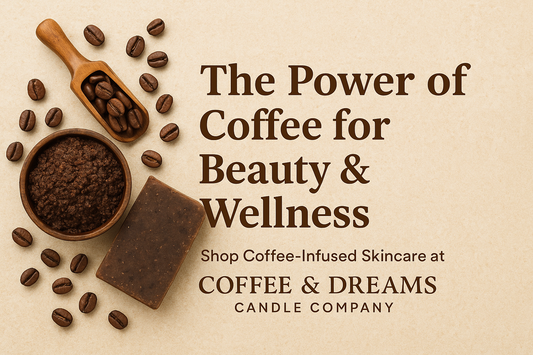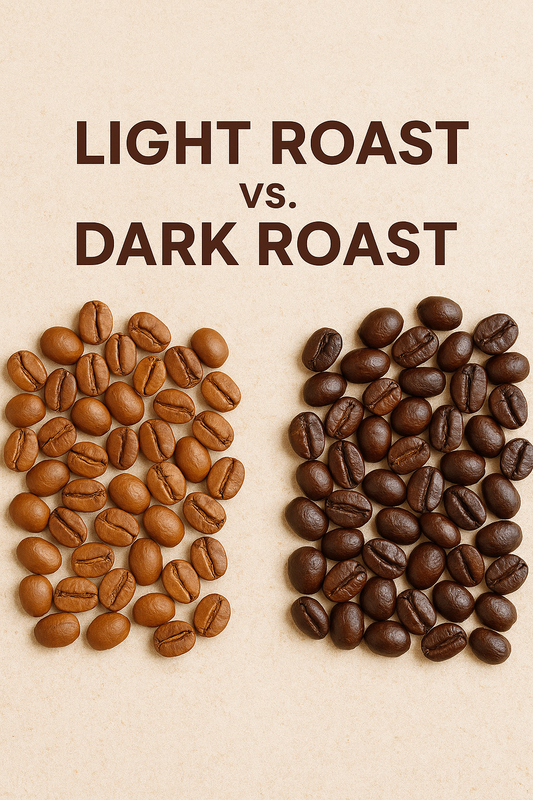
Light Roast vs. Dark Roast Coffee: What’s the Difference?
Standing in the coffee aisle, you spot two options: light roast and dark roast. One looks pale and dry, the other shiny and dark. But what’s the real difference? Does one have more caffeine? Is one stronger? Which one tastes better?
Today, we’re breaking down light roast vs. dark roast coffee in plain language so you can choose your perfect cup with confidence.
What Does Roast Level Mean?
Coffee beans start as green beans—raw, dense, and grassy-smelling. Roasting transforms them into the aromatic beans we brew every morning.
- Light Roast: Roasted for a shorter time, stopping at the first crack (a popping sound).
- Dark Roast: Roasted longer, usually past the second crack, creating darker, oilier beans with a stronger roasted flavor.
Roast level changes flavor, aroma, body, acidity, and even caffeine content—so let’s dig in.
Light Roast vs. Dark Roast: The Flavor Battle
Light Roast Coffee Flavor
- Bright, fruity, and floral notes.
- High clarity, letting the bean’s origin shine through (think citrus or berry tones).
Dark Roast Coffee Flavor
- Bold, smoky, and chocolatey flavors dominate.
- The bean’s natural taste takes a back seat to rich, roasted notes.
If you love complex, lively flavors, go light roast. If you want deep, comforting richness, dark roast wins.
Acidity vs. Bitterness
- Light Roast: Higher acidity (think crisp and vibrant, like white wine).
- Dark Roast: Lower acidity but more bitterness due to longer roasting.
If you dislike sharp flavors, dark roast might feel smoother to you.
Caffeine Content: Which Roast Packs More Punch?
One of the biggest myths in coffee: dark roast has more caffeine because it tastes stronger. Wrong!
- Light roast retains slightly more caffeine per bean, but the difference is tiny.
- Measured by weight? Almost identical caffeine levels.
- Measured by scoop? Dark roast beans are less dense, so you might scoop a little less caffeine.
Bottom line: Caffeine difference is minimal. Don’t pick a roast based on energy boost.
Mouthfeel and Body
- Light Roast: Light-bodied, clean, and almost tea-like.
- Dark Roast: Heavy, syrupy, and sometimes oily, coating your palate with boldness.
Aroma Differences
- Light Roast: Smells bright and fresh—floral, citrus, maybe even berries.
- Dark Roast: Think classic coffee shop smell—chocolate, spice, toasted nuts, smoke.
Best Brewing Methods for Each Roast
- Light Roast: Perfect for pour-over, AeroPress, or drip coffee where flavor clarity matters.
- Dark Roast: Shines in espresso, French press, or cold brew for a bold, full-bodied cup.
Shelf Life: Which Stays Fresh Longer?
- Light Roast: Dry beans stay fresh longer.
- Dark Roast: Oily beans can go stale faster, so use them within a few weeks.
Quick Comparison Table
|
Feature |
Light Roast |
Dark Roast |
|
Color |
Light brown |
Dark brown to black |
|
Flavor |
Bright, fruity, floral |
Bold, smoky, chocolatey |
|
Acidity |
Higher |
Lower |
|
Bitterness |
Lower |
Higher |
|
Body |
Light and clean |
Heavy and full-bodied |
|
Caffeine |
Slightly more per bean |
Slightly less per bean |
Which One Should You Choose?
There’s no right answer—just what fits your taste:
- Light Roast: Bright, lively, complex flavors.
- Dark Roast: Bold, rich, and comforting.
Still can’t decide? Try medium roast for a balance between the two.
Final Thoughts
Whether you sip a light Ethiopian pour-over or a dark Italian espresso, both roasts have their charm. The best way to choose? Try both. Brew the same coffee at different roast levels and taste the difference.
Next time you’re in the coffee aisle, you’ll know exactly what’s in your cup—and which one will make your morning perfect.
✅ Want to learn more about coffee, candles, and cozy living? Stay tuned for more from Coffee & Dreams Candle Company, where coffee and comfort meet.


